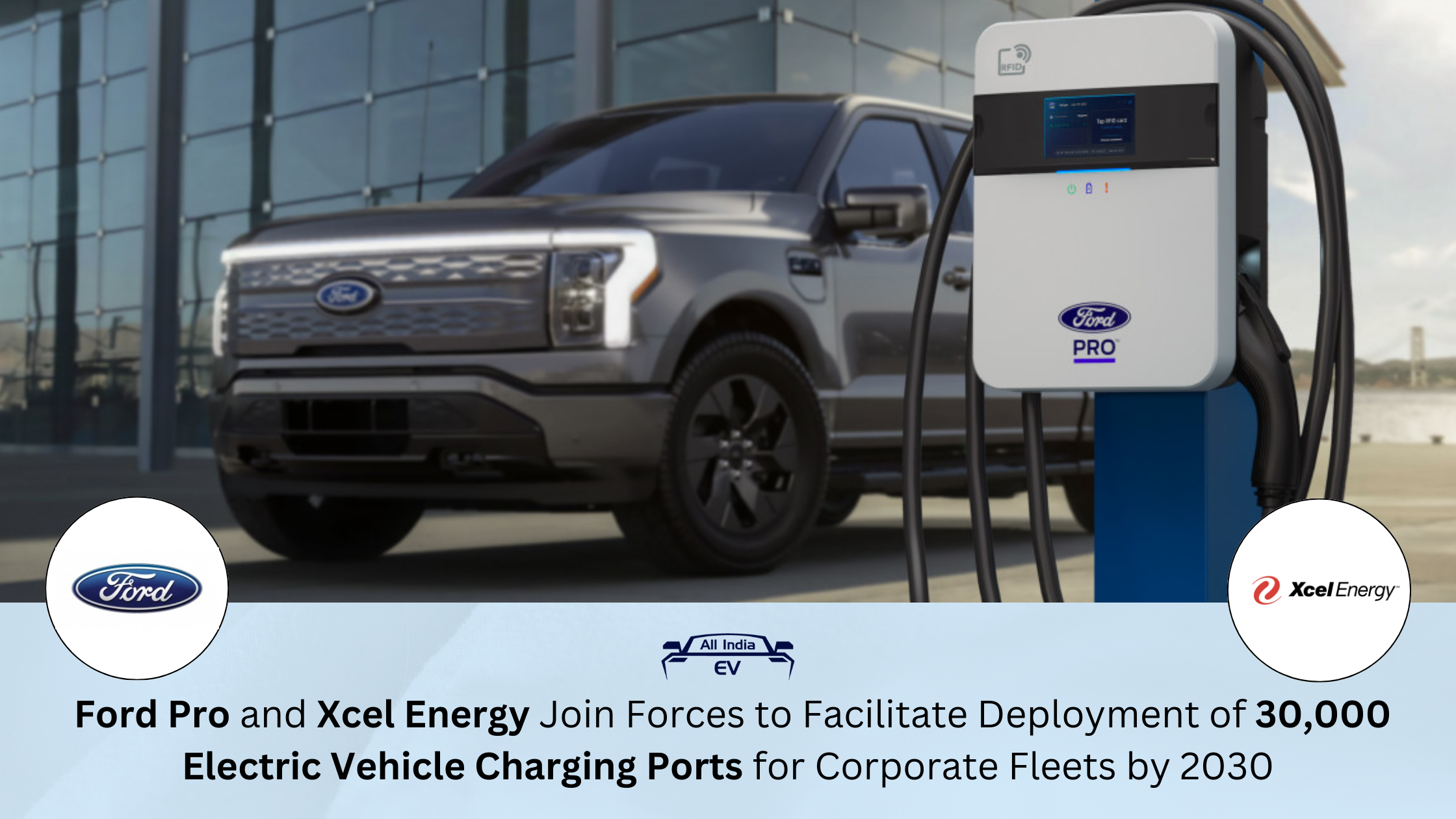Ford Pro and Xcel Energy to Install 30K EV Chargers for Fleets
Revolutionizing EV Charging Infrastructure
Ford Pro, the business arm of Ford Motor Company, and Xcel Energy, a major player in the clean energy sector, are joining forces for an ambitious plan—installing 30,000 electric vehicle (EV) charging stations across locations operated by Xcel Energy in the U.S. by 2030. This strategic alliance aims to advance the adoption of electric vehicles and simplify access to charging stations for businesses within Xcel Energy’s service areas.
30×30 Plan Unveiled: A Key Element of Xcel Energy’s EVSI Program
Under the 30×30 plan, a crucial component of Xcel Energy’s broader Electric Vehicle Supply Infrastructure (EVSI) program, Xcel Energy will support eligible businesses by covering a substantial portion of the initial expenses associated with establishing EV charging stations. Ford Pro, in turn, will contribute its comprehensive charging solutions to Xcel Energy’s business customers as part of this groundbreaking initiative.
A New Model for Scalable EV Charging Infrastructure
Amanda Rome, Executive Vice President at Xcel Energy, expresses the significance of this collaboration, stating, “Ford Pro and Xcel Energy are pioneering a whole new way to scale EV charging infrastructure.” Ford Pro, recognized for its expertise in fleet electrification, is set to provide smart vehicles, charging solutions, and software, while Xcel Energy leverages its advisory role in transportation electrification, offering energy, infrastructure, and innovative solutions.
Geographic Expansion and Regulatory Considerations
The 30×30 initiative, initially launching in Colorado and Wisconsin in 2024 through Xcel Energy’s EVSI program, is poised for potential expansion into additional states within Xcel Energy’s service territories over the next six years, contingent upon regulatory approvals. Target states include Michigan, Minnesota, New Mexico, North Dakota, South Dakota, and Texas.
Streamlining the Electrification Journey for Businesses
“Ford Pro and Xcel Energy are pioneering a whole new way to scale EV charging infrastructure,” said Amanda Rome, Executive Vice President, Group President, Utilities & Chief Customer Officer at Xcel Energy.
“Ford Pro is a trusted provider in fleet electrification, scaling charging infrastructure for fleets with smart vehicles, charging, and software solutions. Xcel Energy is a trusted advisor in transportation electrification, providing energy, infrastructure, and innovative solutions for customers’ homes, businesses, and EVs. Together, we are committed to making a real impact on the future of electrification in America.”
Innovative Charging Solutions and Integrated Intelligence
Xcel Energy will take charge of installing the charging infrastructure for qualifying business customers, with upfront costs offset by the utility provider. Ford Pro will supply Ford Pro charging equipment and offer post-installation customer service and support. The collaboration introduces an innovative approach between a vehicle manufacturer and utility provider, streamlining the process for businesses to acquire EV charging solutions and support.
Maximizing Efficiency with Ford Pro Intelligence
Business fleets can benefit from Ford Pro Intelligence, featuring smart charging software and connected solutions such as Ford Pro Telematics. This integration allows businesses to access data from both vehicles and chargers, optimizing the timing and locations of EV charging. The goal is to enhance uptime and potentially reduce operational costs for businesses transitioning to electric fleets.
Towards a Sustainable Future: Industry, Grid, and Beyond
With an expanding range of Ford work-ready EVs, charging hardware, and software solutions, Ford Pro aims to facilitate a smooth transition to zero tailpipe emissions. Additionally, the collaboration offers extended DC Fast Charger options, providing fleet operators with more flexibility and potentially faster charge times. The joint effort by Ford Pro and Xcel Energy not only contributes to reducing emissions but also sets a precedent for future collaborations between energy and utility companies, catering to the evolving needs of businesses in their service areas for EV charging infrastructure.

